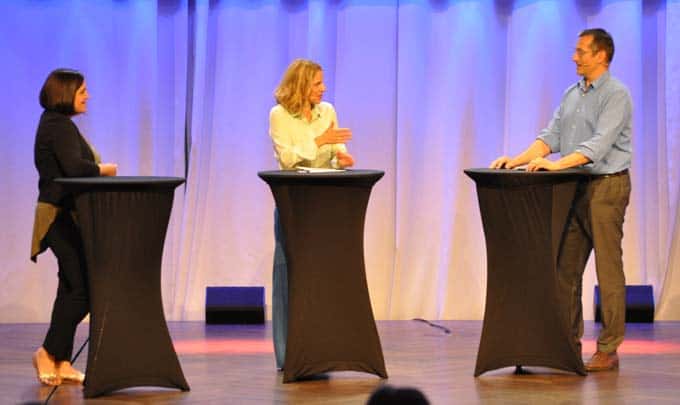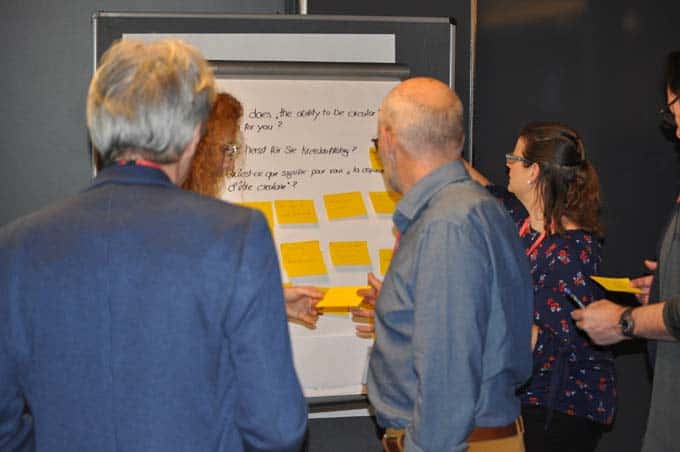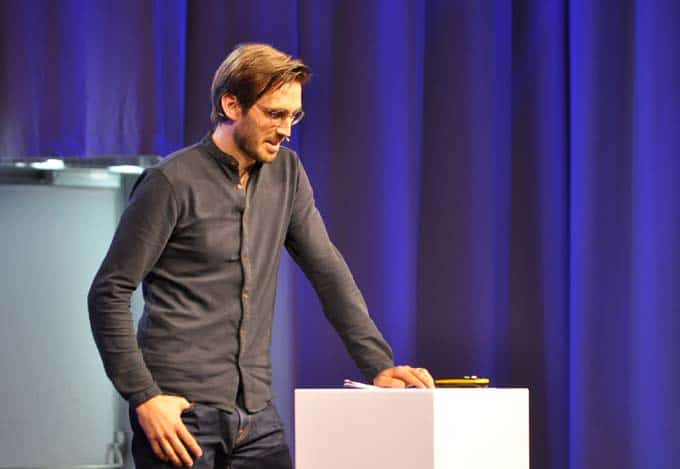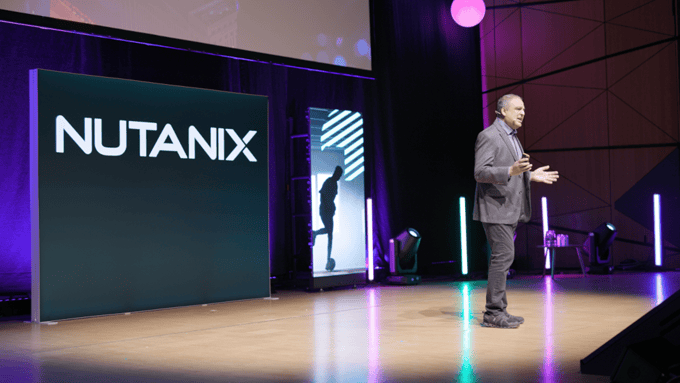Giving the quality of tomorrow the main stage
On May 12, 2022, the traditional Swiss Quality Day took place in Bern - for the first time in two years in the original live format. The guests received insightful inputs for the theory and, above all, for the practice of quality management - all under the sign of the topics agility and circular economy.

Around 200 guests found their way to the Bern Kursaal, the venue for the SAQ's traditional event. Nothing more than the "quality of tomorrow" was the topic of the day. Accordingly, the first speaker, Dr. Martin Menrath, lecturer for Global Quality Management at the Technical University of Berlin, gave the topic a main stage. His presentation was entitled: Why must quality be more than quality in the future? He pointed out that people must become part of the new "Quality 4.0." Adapting to change would become more important than following a plan. In concrete terms, employees must be involved in all processes. When it comes to introducing agility, for example, employees must not be overburdened, so the negotiation processes must be iterative, Menrath said.
How agile organization and quality management "get along"
So is agility combined with quality wishful thinking? This was the question addressed in the presentation by Peter Pedross, a specialist for agile concepts, for example in the automotive and aviation industries. Quality is still needed, he said, even if agile concepts might sometimes give a different impression. "Agile is here, but it has not yet arrived in all topics," Peter Pedross said. He pointed to the new role of quality management within agile processes: Moving away from being a pure testing authority to becoming a service organization. After all, when developing new solutions, quality management must first provide answers. Last but not least, agile concepts require more metrics and even more planning - but distributed over smaller and shorter process steps and overall with a leaner QMS in each case.
New Leadership: Also a Quality of Tomorrow
The panel discussion between Diego Politano (Hasler Rail) and Nadja Perroulaz (Liip) focused on New Leadership - another factor that plays an important role in the question of tomorrow's quality. Two cultures met there: On the one hand, an internationally active industrial company that is managed in a quasi-classical manner - albeit with a remarkably high proportion of women in senior management at 50 percent. On the other hand, there was a software company that was completely committed to Holacracy: No more bosses, but roles and a circle structure. "And that works?" one might ask, which Diego Politano did, expressing his concerns about whether Holacracy is an ideal model even in challenging times. Nadja Perroulaz spoke of good experiences, "even with layoffs we've had to make." She acknowledged, however, that Liip was operating in a somewhat "luxurious industry." The lively, adversarial discussion, led competently by moderator Andrea Vetsch, allowed the conclusion that new management models are needed and that these can also work in industries that have operated successfully with "conservative" concepts up to now. "Managers of tomorrow have a difficult task in any case," the discussants agreed.

Quality management in circular economy and education
The second part of the conference was devoted to the topic of quality in the circular economy and in education. The participants were actively involved in the form of workshops - a format that met with great approval. There was a great deal of activity in all the workshops. For example, the role of quality management in circular design was discussed. How does an idea become a marketable solution? And when along the entire value chain do we need to talk about quality? One answer: Actually, always. And it was also shown that the Circular Economy offers opportunities for many new business models. Who would have thought, for example, that a business could develop from renting out lying minutes on mattresses?
Another finding from the workshop on "Quality in Education": It is increasingly a matter of imparting skills instead of pure knowledge. This means that the requirements for personal certification, for example, are changing. This should therefore not remain static; the 360° assessment is likely to become the method of choice in the future.

Some philosophy at the end
Yves Bossart's lecture was the philosophical conclusion. It revolved around the question of how humans should deal with change. "Change was yesterday, today it's acceleration," Bossart stated right at the beginning. Instead of saving time, new technologies are leading people to live in shorter and shorter cycles: relationships are getting shorter, including the duration of employment relationships. "Everything flows," Bossart said, referring to the ancient philosopher Heraclitus, who coined the phrase. While life is a miracle, it is also "an imposition" with ever-new challenges, Bossart continued. He recommended stoic composure as an attitude against this: to be content with what is at the moment. A good dose of humor also helps in dealing with change. With all the uncertainty that the future brings, philosophy can help, for example with Socrates: "I know that I know nothing," because ignorance is the normal state of people. Last but not least, human beings are nevertheless very capable of change, as the Corona pandemic has also shown. "Suddenly you have to get used to not wearing a mask on public transport again," says Bossart. And if nothing works at all anymore, Bossart recommends something Seneca: Be a friend to yourself. This was a good way to get back to the theme of the conference: "Quality tomorrow" also includes a lot of care for personal quality of life...
Further information: www.saq.ch









